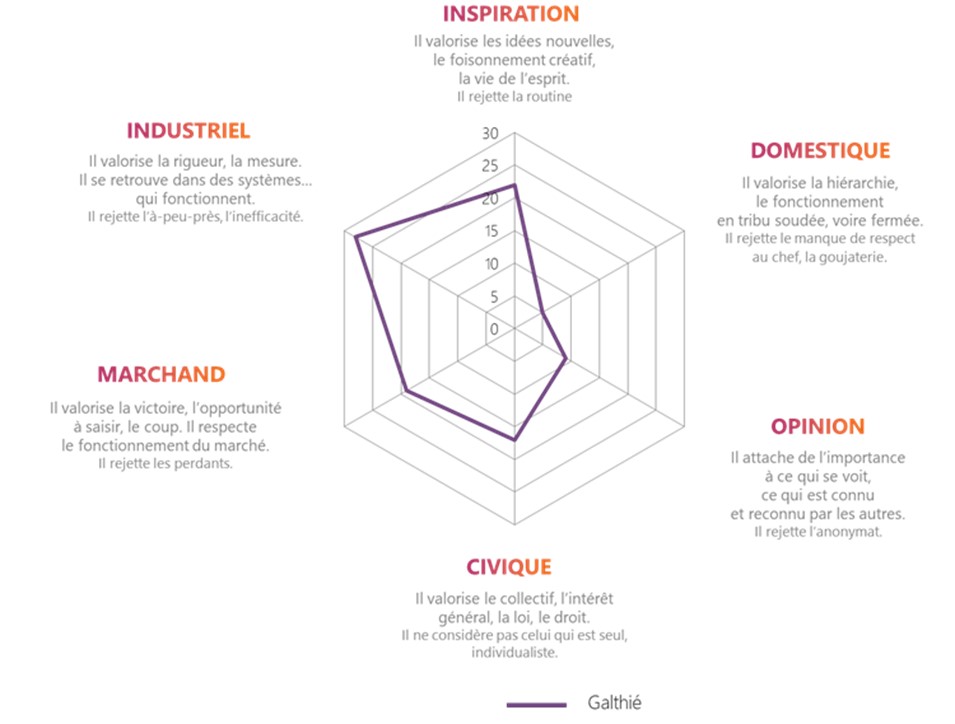Fabien Galthié’s coaching career has not been an easy one!
At club level, he often started with convincing successes at Stade Français, Montpellier MHR and then RCT Toulon. But these experiences often ended with a bitter taste, as he was sacked by managers with whom he was unable to cooperate (it has to be said that cooperating with chairmen with personalities as clear-cut as Mohamed Atrad or Mourad Boudjellal is certainly very complex!)
Aside from clubs, Fabien Galthié has always dreamed of coaching the French national team, and he has made that dream known. However, he was turned down in 2008, 2012 and again in 2015. Other coaches are preferred to him for no objective reason. His rational, demanding and cold approach is in stark contrast to a very domestic environment that operates on the basis of emotions and clannish personal relationships. Dejected, he announced in the media that it was all over, that he was giving up the French national team. “He had fallen from grace. He always chased the job of coach but was never chosen. His name was always circulating behind the scenes, but there was never unanimous political support for him. He wasn’t interested, he doesn’t lobby, so he doesn’t have the right political backing,” explains Landreau, one of his loyal deputies.
Until that day in the spring of 2019 when he received a phone call from Bernard Laporte. In December 2017, the new president of the FFR had sacked Guy Novès and called his friend Jacques Brunel to the rescue. But the French team was still not winning. So he offered his former captain the following deal: join the Tricolor staff for the forthcoming World Cup before taking over the reins of the national team on his own after the competition (admire Bernard Laporte’s political know-how in bringing the ‘Wolf into the fold’ despite opposition!) Exhausted, Fabien hesitated, then accepted. This is HIS chance, and he must seize it.
Learning to cooperate
Fabien’s journey has been full of pitfalls, and he has realised that he cannot succeed alone, however competent he may be. He is going to need others, all the others. But he has to innovate to find his own method of cooperation.
He knows he can’t do it in domestic mode, by negotiating ad hoc agreements. That’s beyond him. He will do it methodically, with an “industrial” mindset to align the players and events with his famous “Arrow of Time”.
The cornerstone of successful cooperation? Uniting divergent players around an ambitious, unifying objective. The goal is “To win the World Cup in 2024 in France”. “Support me (in every sense of the word) for 4 years. After that, basta!
But it’s not just a question of announcing this objective, we have to make it desirable for everyone.
- We need to analyse the drivers and obstacles, and the world of the stakeholders. This objective must be described in terms of its benefits for everyone: the federation, the clubs, their managers, the professionals, the amateurs, the local authorities, etc.
- Gradually demonstrate your credibility. This means having a precise long-term strategy. Produce results to move up the international rankings. Establish a culture of “industrial”, predictable, replicable victories, as opposed to the Gallic “logic of honour” theorised by Pascal d’Iribarne, which allows us to achieve the greatest feats and then fall back on our failings.
- Getting people to admit that these benefits come at a price. For professional clubs, this means making their best players available to the French national team on a regular basis for long periods. This comes at a real cost to the clubs, who have to hire ‘doubles’, take the risk of having fewer spectators, risk losing points in the rankings, etc. It took a great deal of patience and argumentation to convince them that this was the right price to pay and that what was good for the French team was also good for the clubs in the medium term. As with any lasting cooperation, it is important to demonstrate that the balance of benefits and costs is positive.
- Clearly define the level of agreement required between the parties. Fabien isn’t building “friendly little arrangements” type agreements, or even “gateways – operating processes”. No, he wants a “global” agreement. His demands drive him to involve his team and all those around him in a shared World. In this Shared World, issues are easily resolved because everyone is on the same adventure. The benefits are there for everyone. French rugby as a whole will have progressed.
So, of course, it’s “at the end of the fair that you count the dung”. Now it’s a question of winning this World Cup… at last!
Update: France lost by one point to South Africa. Which just goes to show that preparation isn’t everything and that you have to outdo yourself on the big day, and that rugby balls are oval with capricious bounces … just like the crises we have to deal with in real working life!
At the heart of this cooperation, it is essential to understand Fabien Galthié’s WORLD.
The 6 Worlds grid is our guide.
First of all, let’s eliminate the Domestic World, which is not his mainstay and which has been the source of many disappointments for him. Fabien protects himself from emotions and favouritism.
Performance is the only thing he judges. He is a rugby industrialist. He wants to align everything with his time arrow. Anticipate every stage, with plan Bs. He measures everything and uses data to avoid impressionistic blurs. But this Industrial World is not an end in itself, it is not a technocratic justification.
First and foremost, it is kept on a tight leash by the Merchant World. We have to win, be pragmatic, and quickly punish anything that doesn’t work, without qualms or ideology. Winning is essential: that’s the aim of this cooperation: to win the World Cup. But Fabien doesn’t want to pull a fast one, to act opportunistically. He’s convinced of his industrial approach, which is the key to achieving the goal. And even if the result isn’t there, he knows that he will have done everything possible to achieve it, and that the foundations will be solid enough to make the move again later.
Secondly, what stands out strongly in all the French coach’s communications is his search for inspiration. He is open to anything that will help us win. He’s always looking to be one step ahead, “he’s thinking about the rugby of 2030”. He wants his team to live a unique adventure, to surpass themselves, to be “inspired” by an ideal of winning, of course, but above all by a shared experience and shared values.
The sense of action is key for him. That’s why he chooses his small village of Montgesty to recharge his batteries, reflect with his team and even, in a media heresy, launch his communications plan. This demand for meaning allows him to regulate conflicts, such as the selection of players, which inevitably leads to some happy and some disappointed, or the attempts by clubs to negotiate less restrictive schedules, without falling back on arguments. What counts is the project, the goal, which is stronger than personal or collective feelings. The Civic World, the search for a “common good” that goes beyond personal or private issues, is at the heart of its operation.
Finally, the World of Opinion. It’s not his cup of tea. If he could avoid it, he would do so with pleasure. But he has come a long way and he has – at last – understood that it is a major lever of cooperation for convincing and securing support. He does not have hierarchical power (let’s not forget the major role of Bernard Laporte at his side, who is a man of power), so something else is needed: listening, explaining, convincing. As he does this with solid roots, the Worlds activated above, his communication has a very strong impact, it is coherent and long-lasting. It’s so rare these days that he can achieve so much with so little.
This World of Fabien has been a patient process for him. A glance at his career shows that he has evolved a great deal. He didn’t start out as an industrialist, but as an intuitive and empirical “Inspiration and Merchant”. He has developed this. He detached himself from the domestic world, from emotional relationships, to protect himself from the humiliations he experienced. However, he has managed to keep a strong emotional dimension, which he accepts: “Chalureau will no doubt cry at the press conference”, well yes, that’s normal, but let’s accept that and make it a strength for him and for the team. To find this balance, he has built himself up by developing his Civic World, by deepening the need for a collective, shared sense of purpose that goes beyond individual interests. He has turned his weakness, Opinion, into a strength. Even his black “welder’s” glasses, which allow him to hide his shyness, have become a key element of his brand image!
For all of us, Fabien’s example is confirmation that our World is malleable. It is what we want it to be: our representations of what is important depend on how we process external stimuli. The challenge is to build a personal match between these stimuli and our history, our personality.
Beyond the useful but ‘rustic’ visualisation of our 6 reference Worlds, it’s the alchemy between them that’s important. What strikes me about Fabien’s World is its coherence: each of the World dimensions reinforces the other. That’s what gives it its strength.
In the 1/1 debriefings of your personal Worlds, we try to share a few keys to developing cooperation, such as realising that Merchant and Civic can form a powerful pairing, or that the World of Opinion is a key lever for building relationships with Worlds far removed from your own, beyond any ego issues.
Laurent Dugas
Want to know more ? Contact us !

